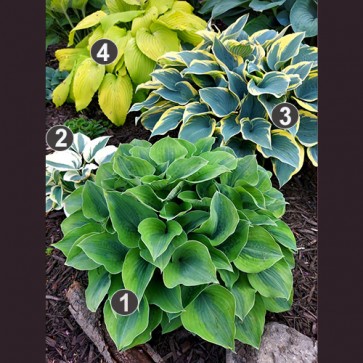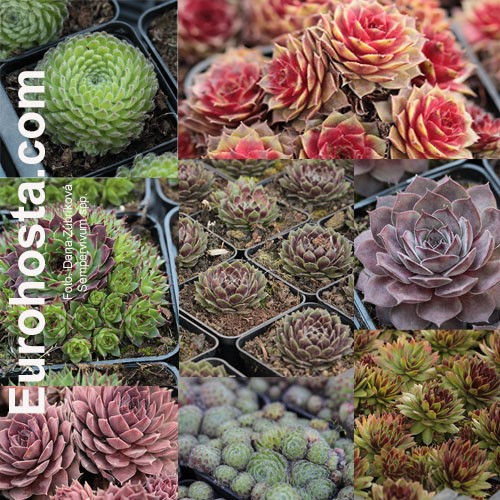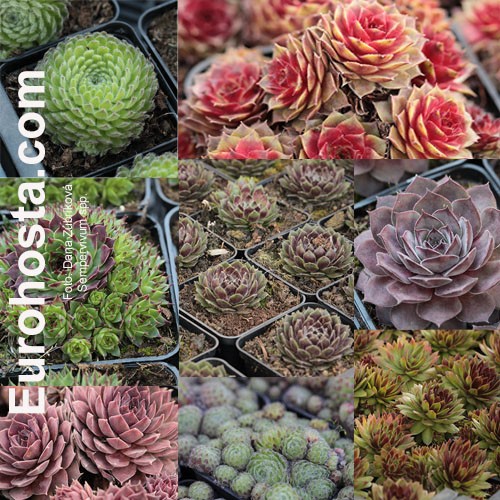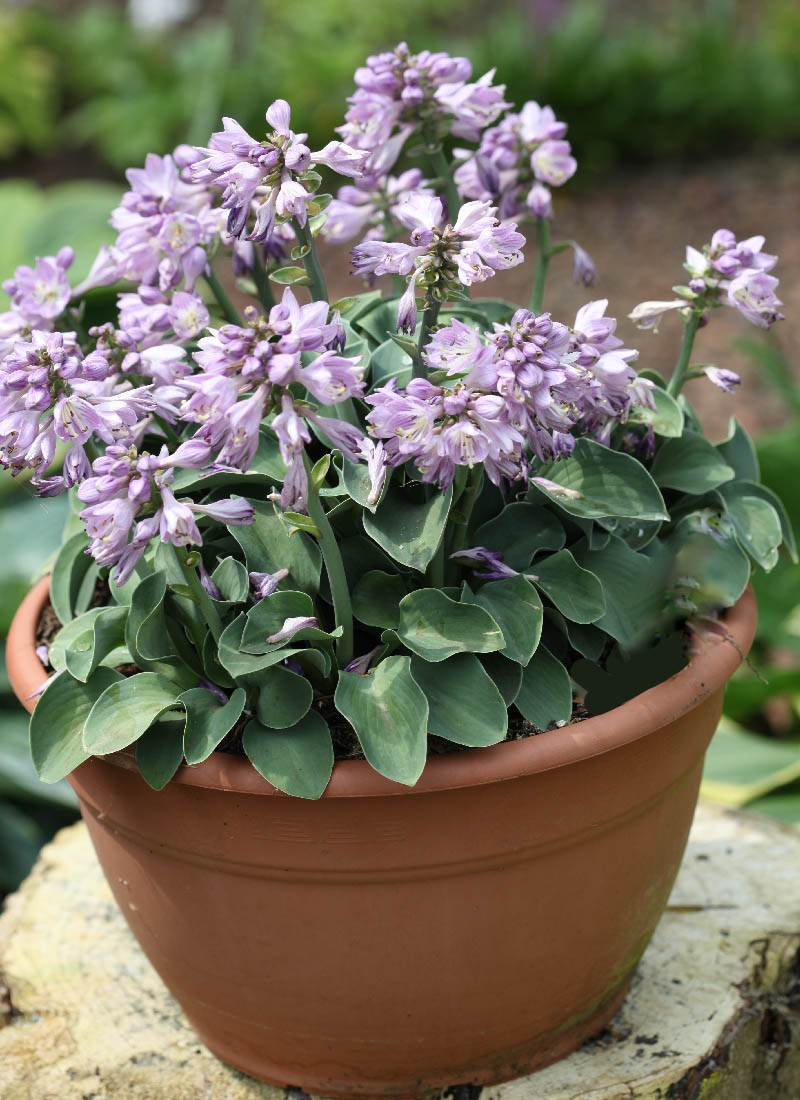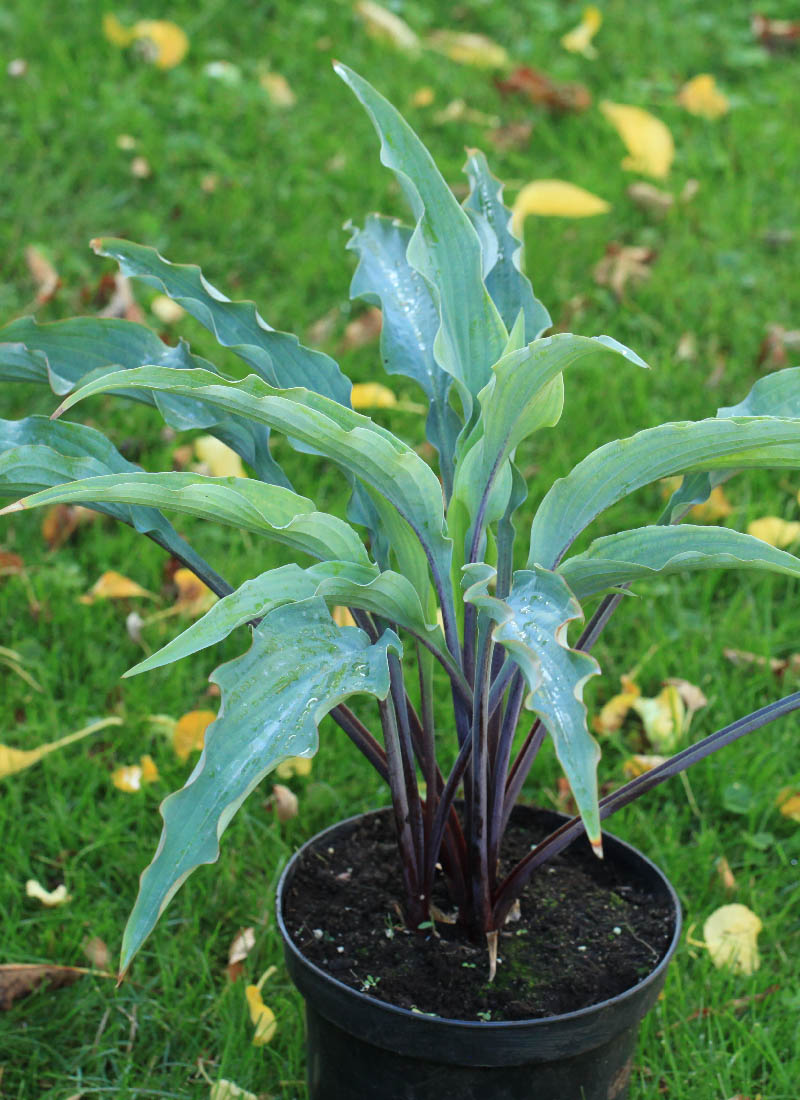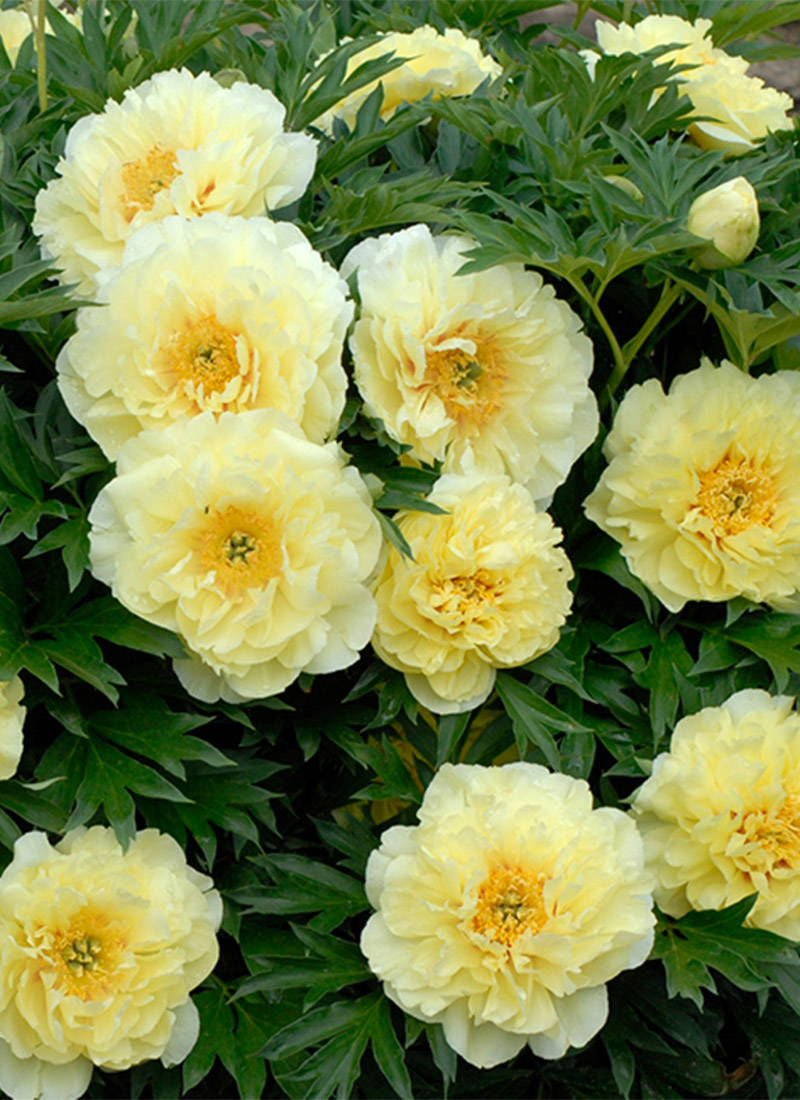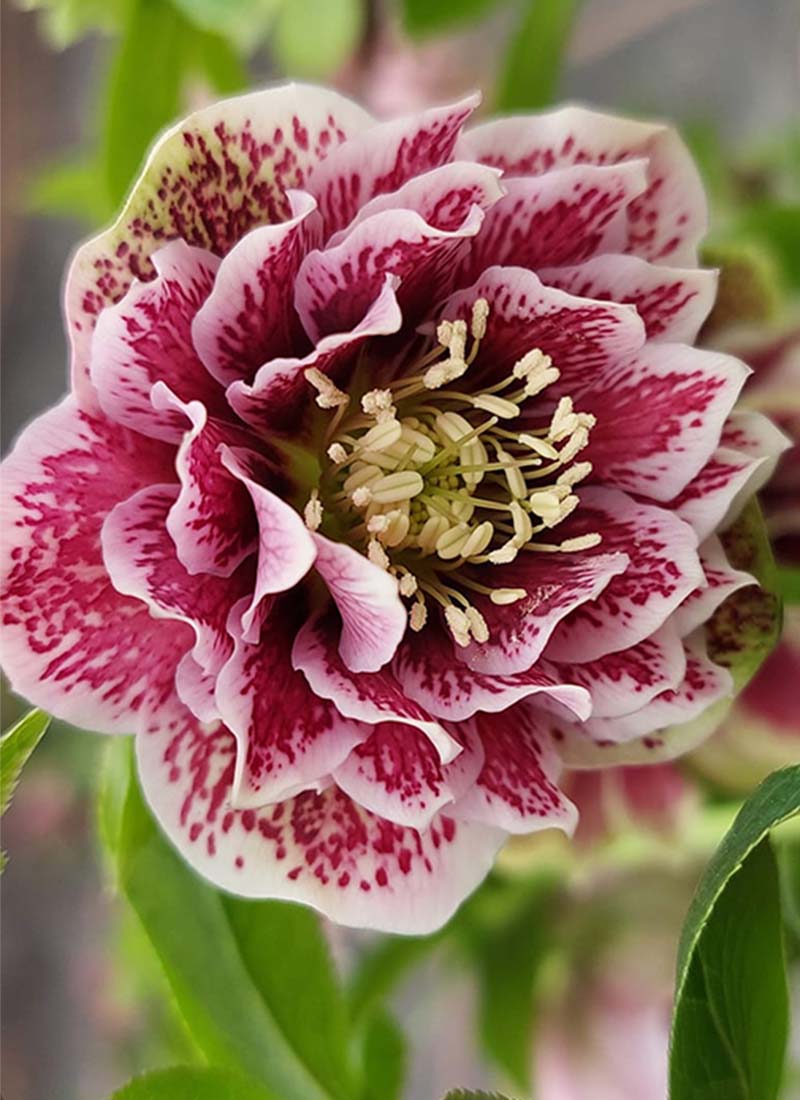Landscaping with H. Luna Moth
- Product Code:
- K034
Availability: Out of stock
The following product is out of stock for this moment. Notify me, when this product is again available.
Landscaping with hosta - design with H. Luna Moth. Hosta Luna Moth is a beautiful, compact "hosta" ideal for the front part of a perennial bed. You can complement it with other hostas such as 1 - Hosta Luna Moth, 2 - Hosta Firn Line, 3 - Hosta First Frost, 4 - Hosta Dancing Queen. This combination will create an amazing hosta bed in a shaded garden.
How to grow hostas
Save light shade to shade place in your garden to plant hostas. Filtered sun is best for the colorful varieties to reach their full color contrast. The green and blue hostas are the most shade-tolerant. Usually the yellow cultivars are the most sun-tolerant. The most dangerous is a direct sunshine, especially hot afternoon sun. This is the most critical where temperatures are high. Variegated varieties, especially those with a lot of white in the leaves, burn very easily. Blue color of leaves turns to green-blue or even fully green with too much direct sun. Plants with thick leaves are better suited for dry soil conditions than thin-leaved ones, but none is able to grow years-long in very dry soil. Plant hostas in moist, humus-rich soil.
Water your hostas well immediately as you plant them. Give them water regularly during their first one or two growing season.
Hostas grow slowly and may take 2 to 5 years to reach their full size, longer for the largest species and cultivars. Reserve a plenty of space in your perennial bed for hostas. Most of them are medium sized or large perennials. Hostas are almost fully disease and pest resistant. The most dangerous injury can by caused by slugs, snails and deers.
| Moisture demands | Medium |
|---|
No video available.

